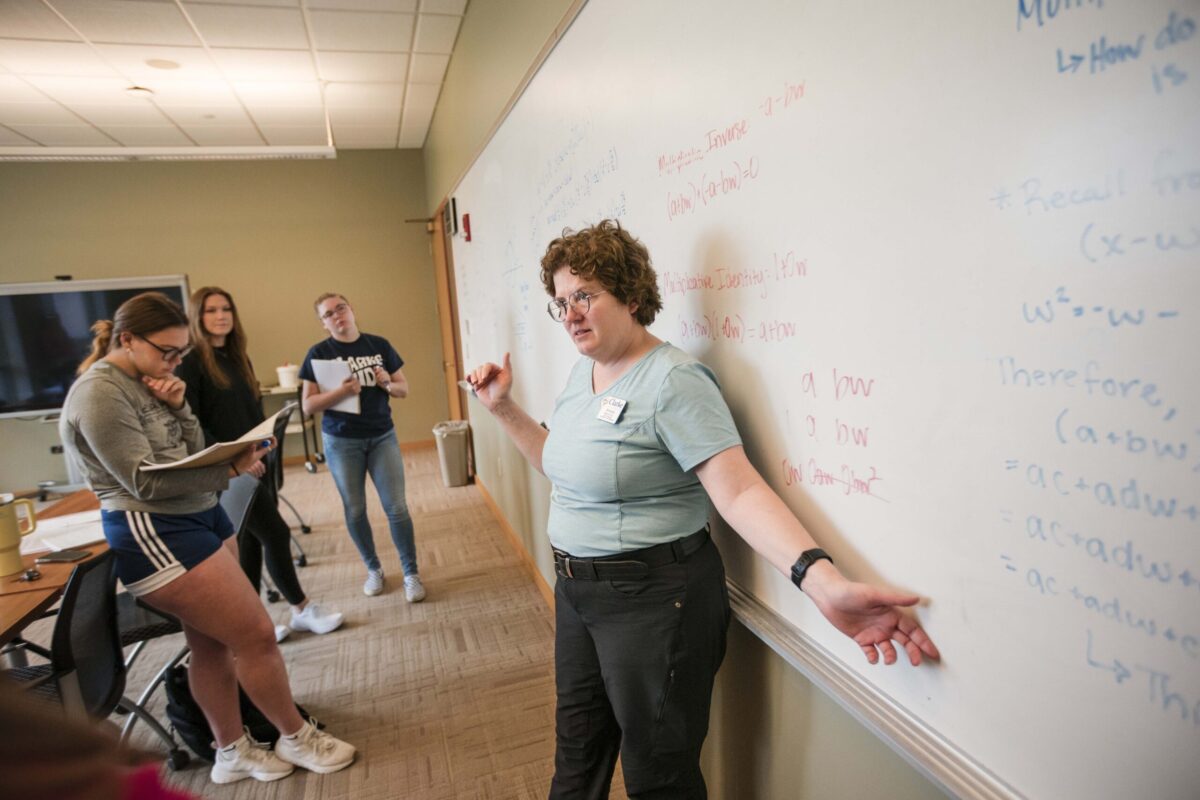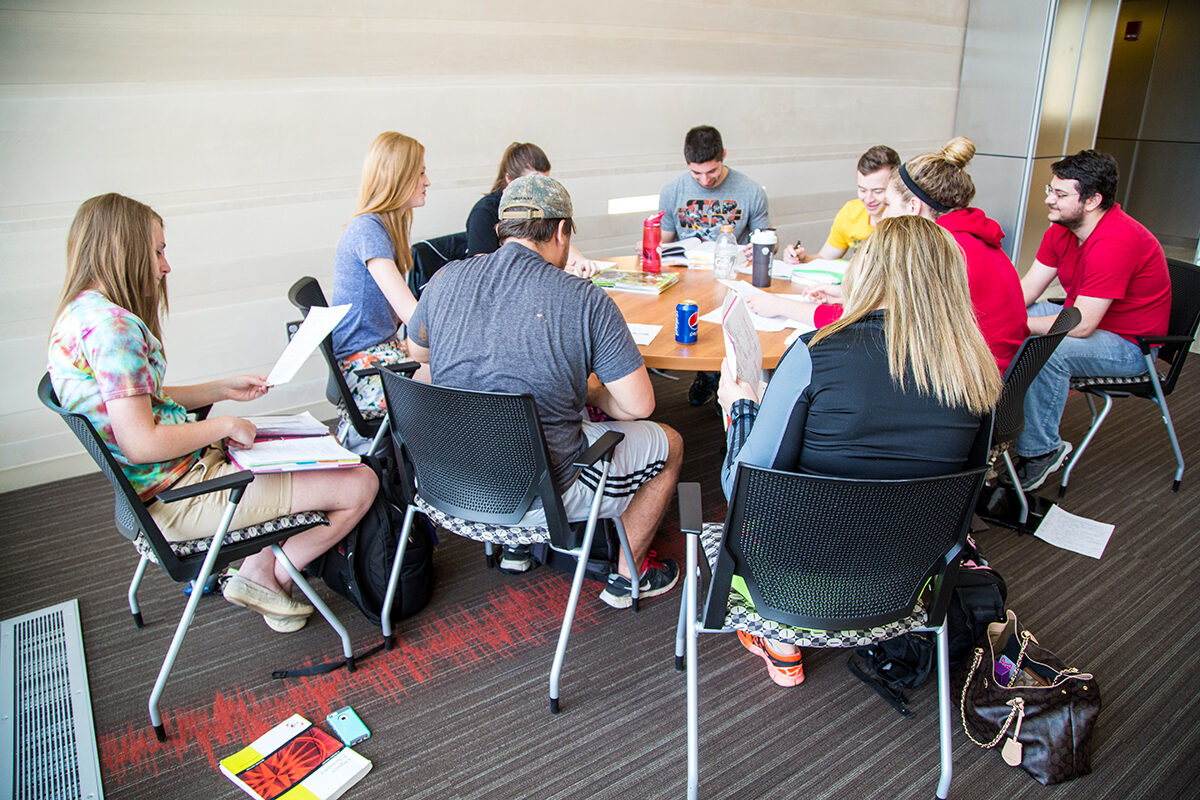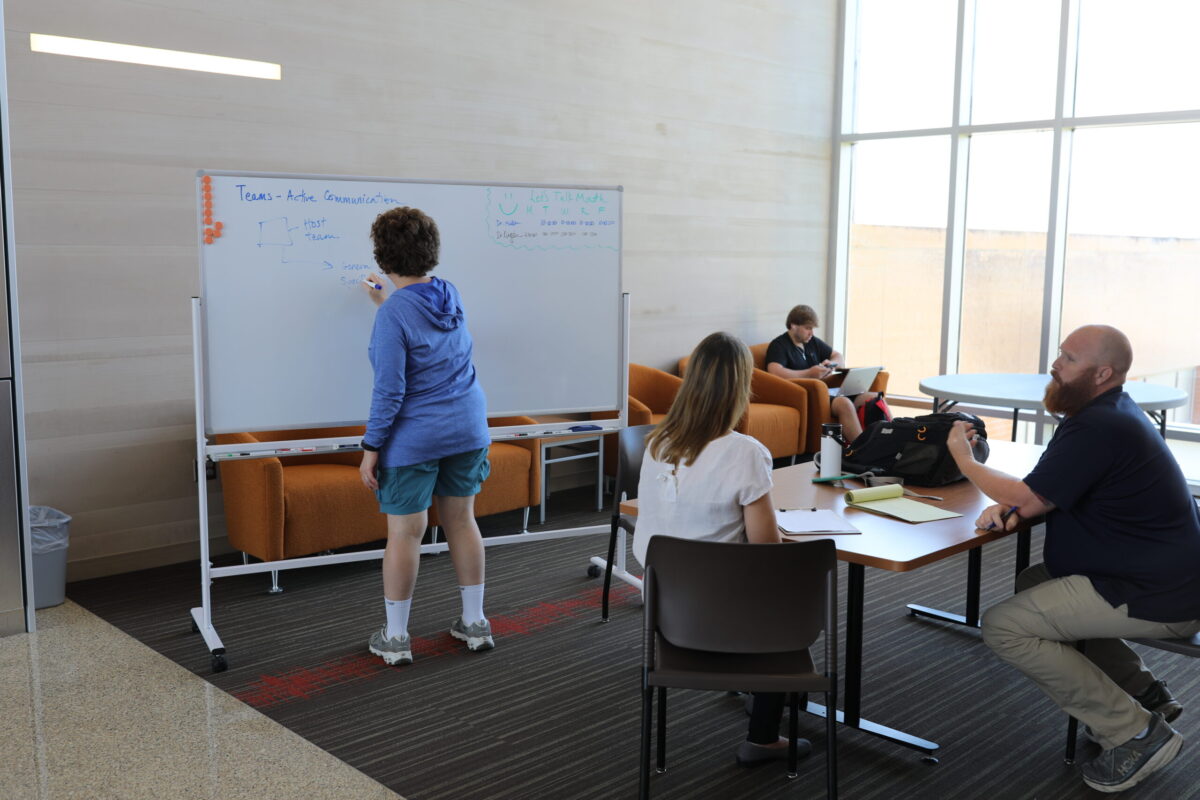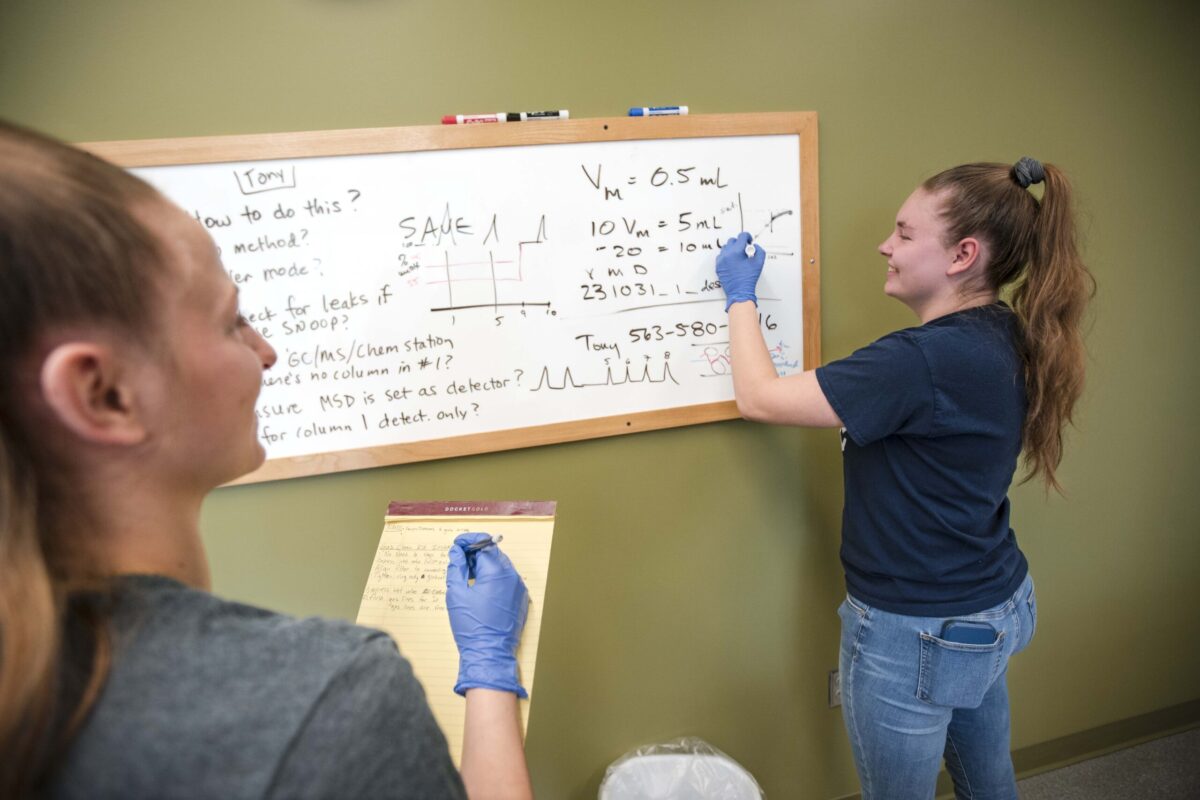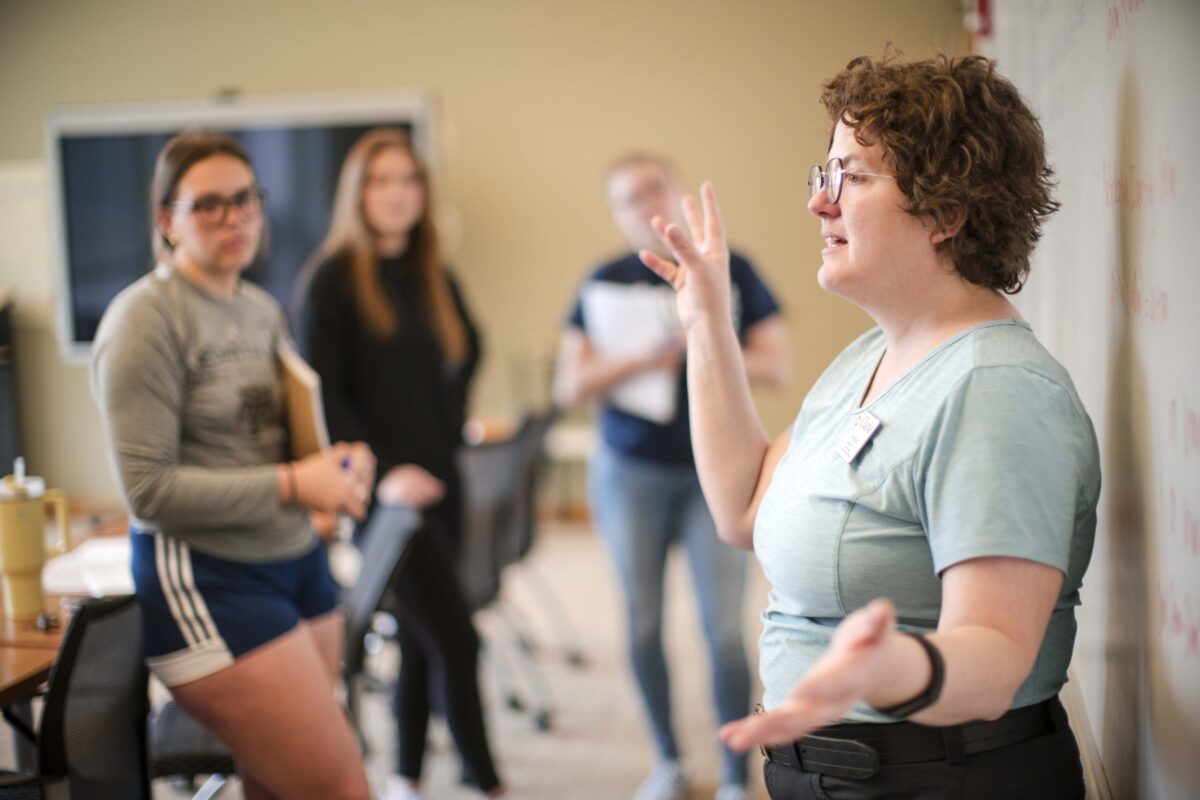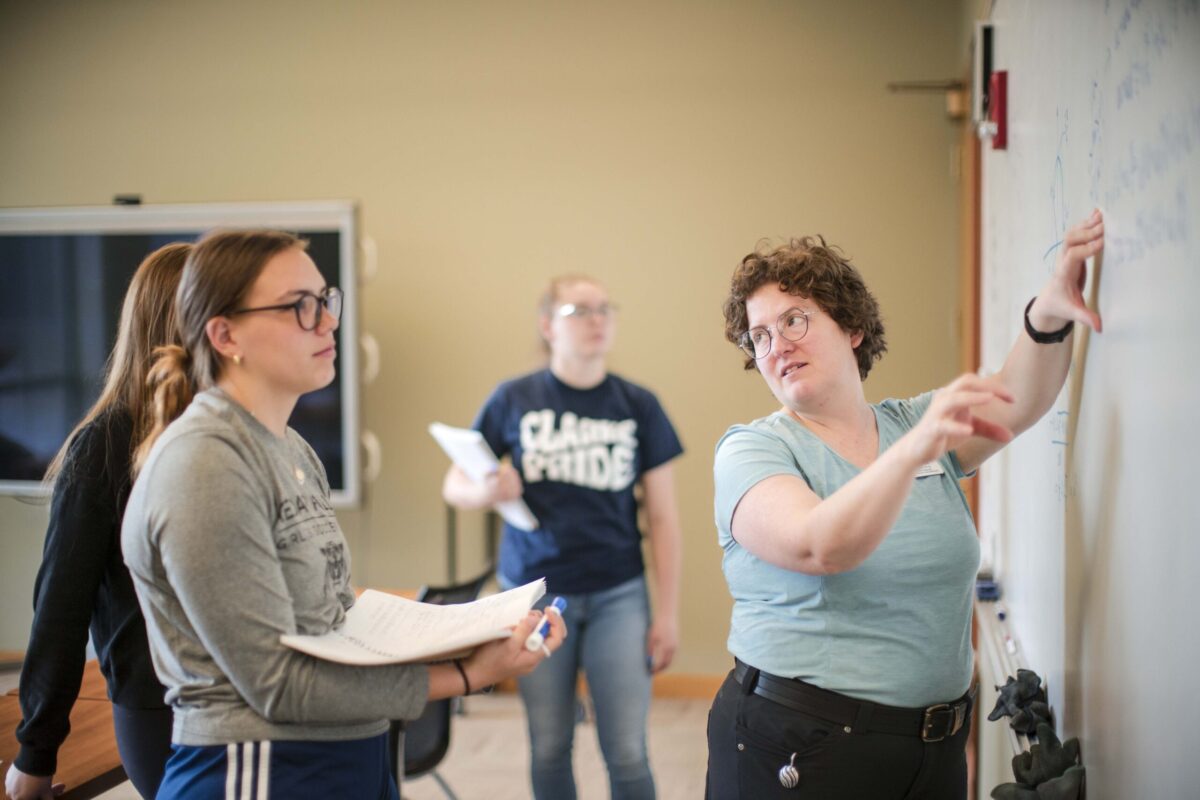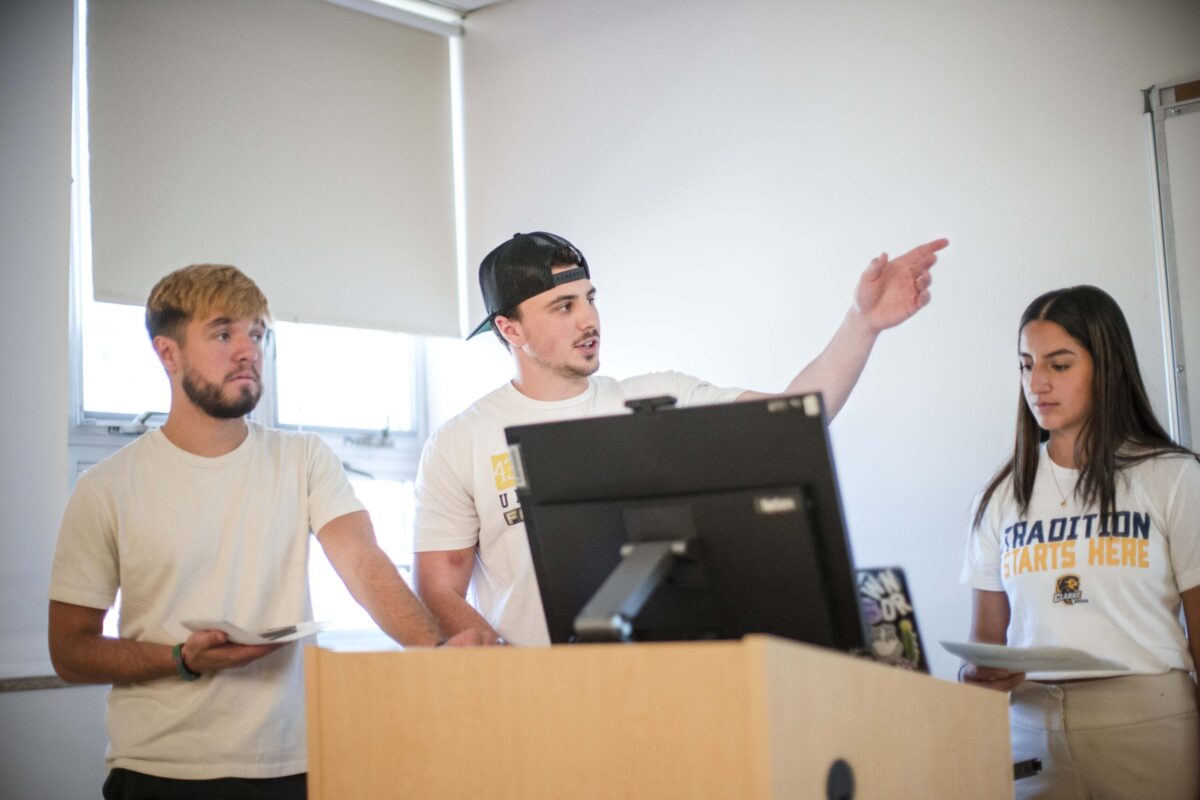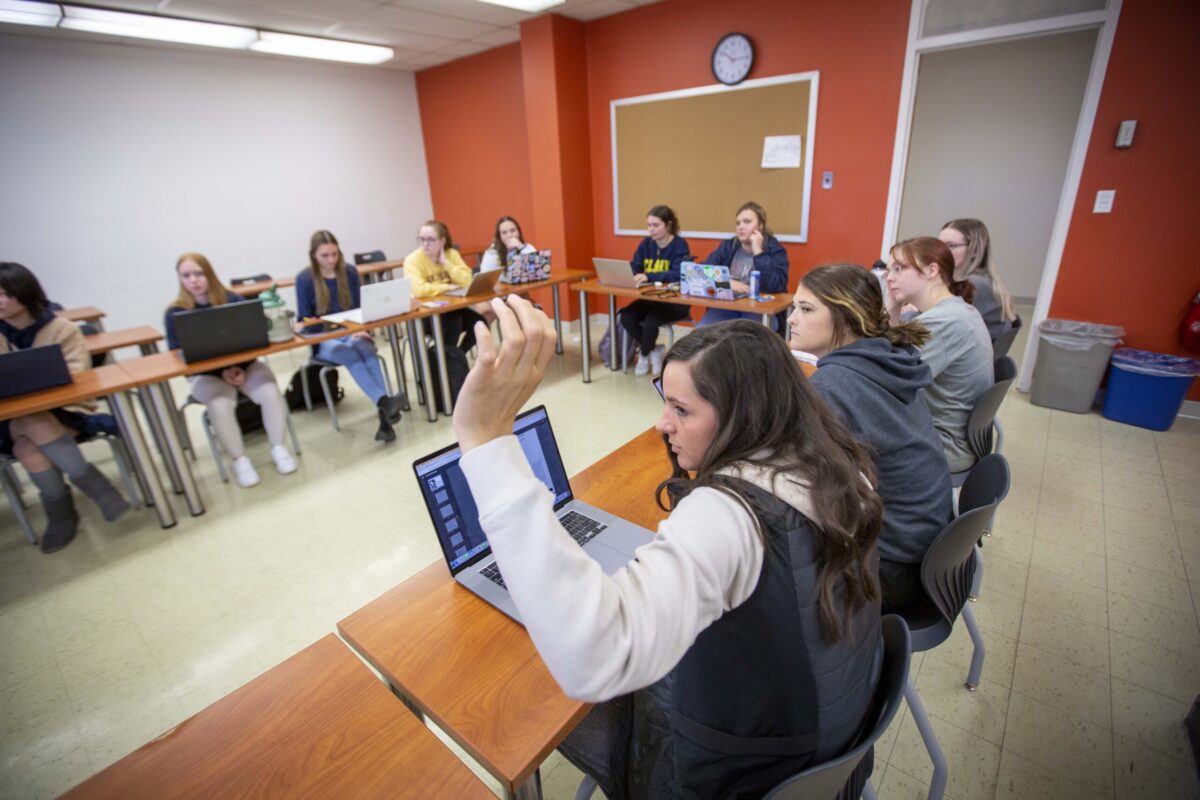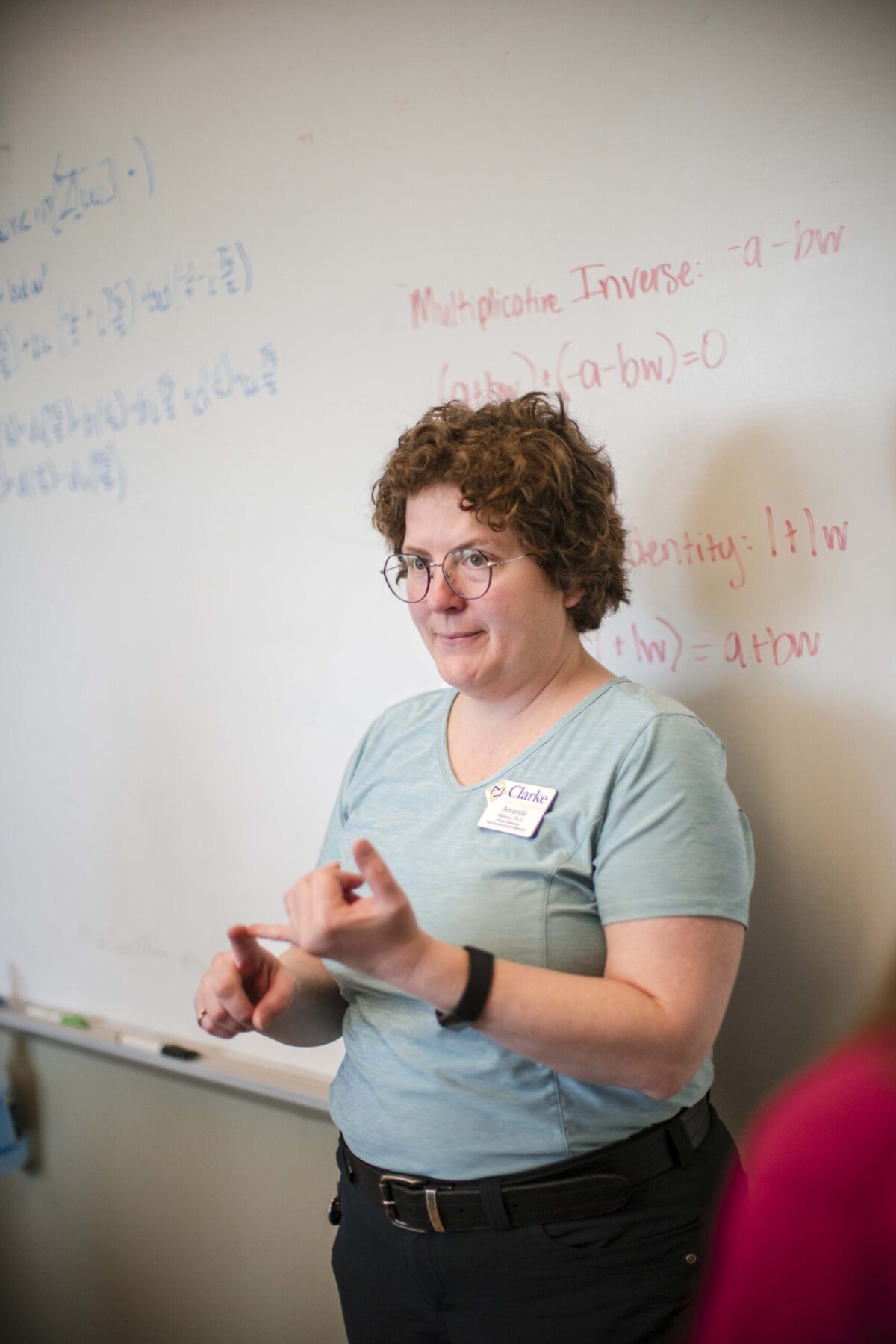Amanda Matson, Ph.D.
I care about students as whole people, and I wish to empower them through my teaching.
Finding patterns, solving puzzles, and discovering new ways to think about old problems are all part of mathematical thinking and what a math major studies. When reaching for a degree in Mathematics, you will develop analytical skills and the ability to work in a problem-solving environment – two items that rank high on employers’ lists of desired assets. Our mathematically diverse and dedicated math major faculty members ensure that you are always learning the most up-to-date techniques. A mathematics degree opens doors. Employers know math degree graduates have the quantitative reasoning skills needed to succeed in vastly diverse businesses.
Something new you’ll probably learn about math in Clarke’s math degree program: There is no right answer. It’s perhaps strange that for a subject that relies so strongly on mathematical proof, there is no right or wrong answer when it comes to answering the question, “what is mathematics?” The Oxford English Dictionary states that mathematics is an “abstract science which investigates deductively the conclusions implicit in the elementary concepts of spatial and numerical relations, and which includes as its main divisions geometry, arithmetic, and algebra.” The American Heritage Dictionary sums up the subject as the “study of the measurement, properties, and relationships of quantities and sets, using numbers and symbols.”
In the math major at Clarke University, you’ll utilize a myriad of software and technologies, stressing conceptual development and logical reasoning. You’ll engage in cooperative learning and learn to discern what technologies are appropriate to a situation. As a math major, you’ll develop strong analytical and communication skills and learn problem-solving strategies – qualities highly sought after by employers. Does this appeal to you? We invite you to come to campus in Dubuque, Iowa, and see for yourself what a day in the life of a student studying for a bachelor of mathematics is all about. You can tour campus, chat with fellow students who are studying for a math major, and sit in on a class of your choosing. We promise, you won’t be disappointed!
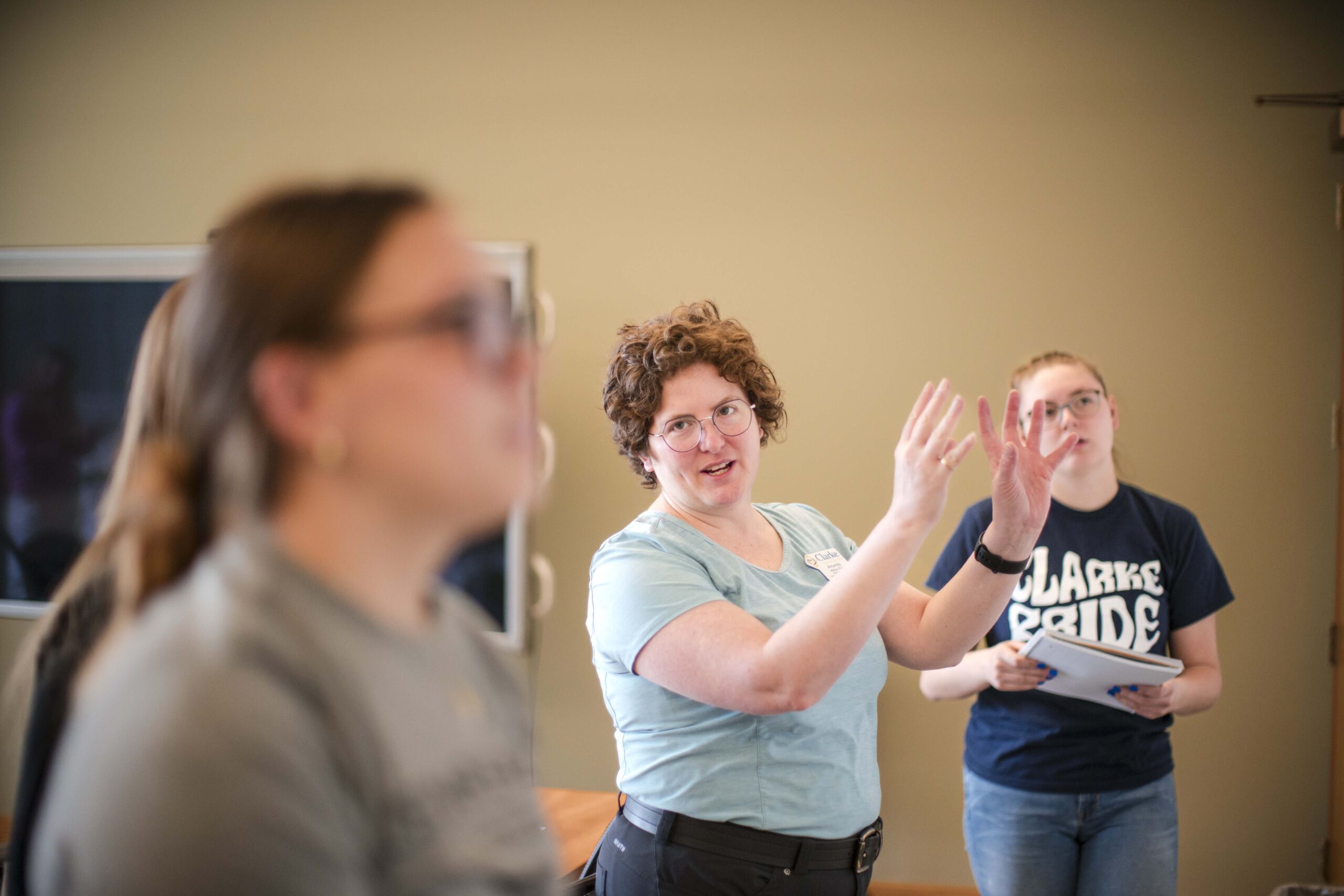
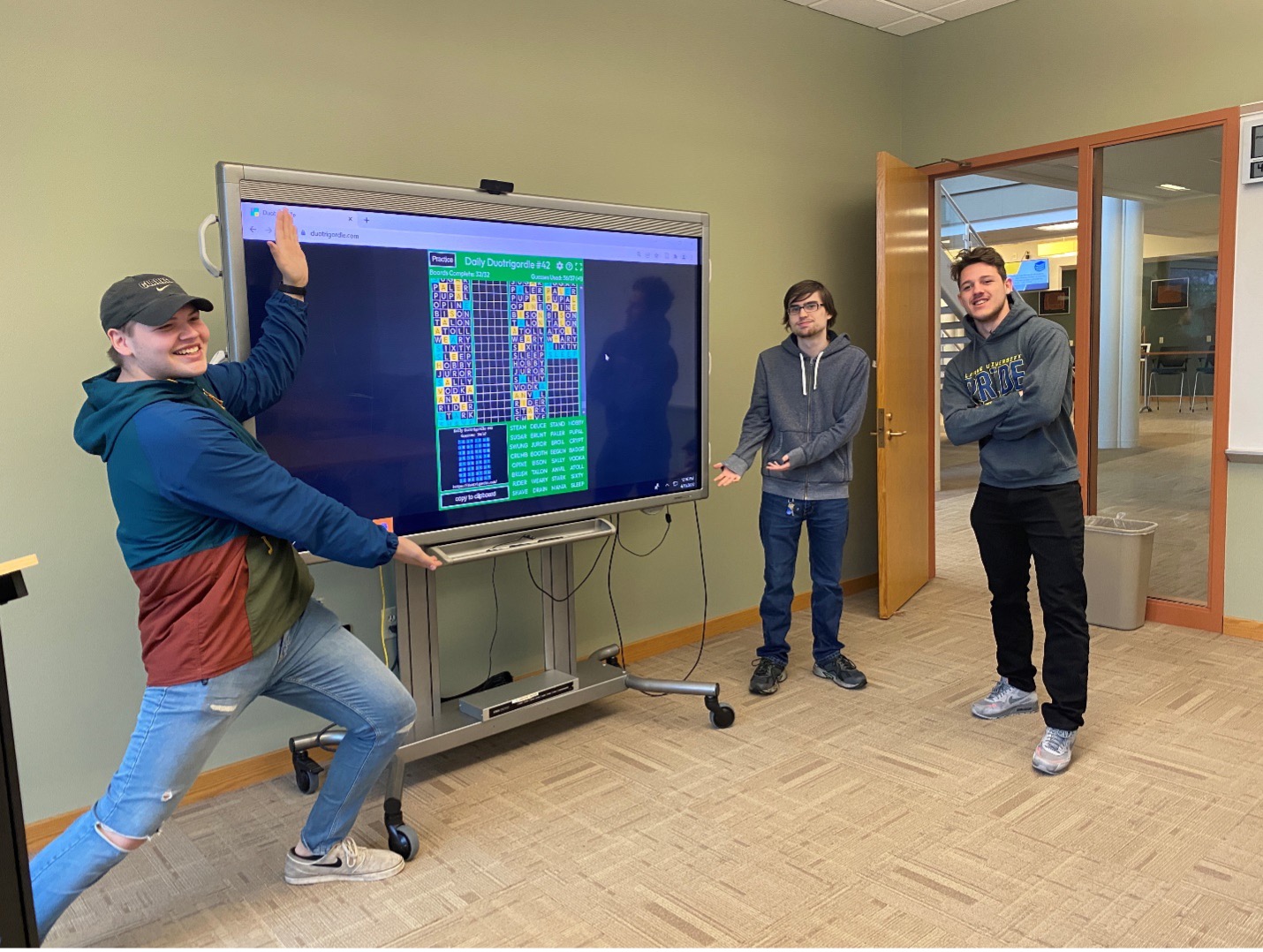
You’ll be wanted. Mathematical skills and experiences stand out on your resume; only about 1% percent of college graduates hold a degree in mathematics. In addition, employment of mathematicians is projected to grow 33% from 2016 to 2026, according to the
U.S. Bureau of Labor Statistics.
You will utilize myriad software and technologies, stressing conceptual development and logical reasoning, encouraging cooperative learning, and using integrated labs that provide you with the opportunity to discern what technologies are appropriate to a situation. You’ll work with practical applications, applying skills that are critical in today’s changing world.
Mathematics has held an established position among the humanities for more than 2,000 years. Mathematical knowledge, with old questions being answered and new ones asked, is growing at an unprecedented rate. As a math major at Clarke in Dubuque, Iowa, you’ll study a broad range of topics, including algebra, calculus, trigonometry, geometry, computational mathematics, statistics, number theory, and discrete math. As a math major, you’ll learn to attack problems from multiple angles. You’ll be equipped with a toolbox of theories and knowledge that will have you chipping away at problems from different angles to reach a breakthrough. Our Clarke University mathematics degree program involves a combination of pure (theory and abstract) mathematics and applied (practical application to the world) mathematics.
All the Opportunities
Cool Classes
Linear Algebra — Learn how to think in higher dimensions. This is probably the most useful math course any math or science student can take.
Probability — Learn the basics of probability utilizing theory and technology. This class uses all your tools.
Capstone — Students get to choose a topic and investigate it in an original way. Learn about something new, find new connections, or create your own mathematics.
Applicants are considered on an individual basis. Apply to Clarke today to begin your journey.
Fun Facts
How About a Career?
Graduate schools (business, law, medicine) and employers think a math major is great because individuals with a math degree realize that studying mathematics develops analytical skills and the ability to work in a problem-solving environment; these are skills and experience which rank high on their list of assets. According to www.glassdoor.com, the 20 best jobs in America in 2020 can nearly all be linked back to a bachelor of mathematics. Well-known organizations like 3M, Facebook, NSA, and CIA are employers actively hiring mathematicians. Take a peek at some of the fields seeking mathematics degree-holding graduates:
Clarke University offers several faculty-sponsored study abroad experiences to destinations such as Spain, Scotland, Ireland, and Japan. Study abroad trips encourage you to experience different cultures, broaden your mind, and discover your own passions.
You will learn by observation and participation at off-campus laboratories or field settings through internships and experiential education ventures. Internships often facilitate entrance into the job market and are highly recommended for acceptance into some graduate programs.
The Math Club is open to all majors and aims at pushing the boundaries of what is thought of as math. This lively group coordinates social events such as caroling, pie throwing, pizza parties, and many other activities.
My goal was to attend veterinary school, and my double-major at Clarke helped me get there. This year I am off to veterinary school at Colorado State!

The Mathematics program taught me to become more resilient and detailed. All my Mathematics classes have involved everyone’s input, leading to further conversations about the topic and testing us to solve problems in different ways. Being thorough and consistent remains the motto that builds my current and future success.
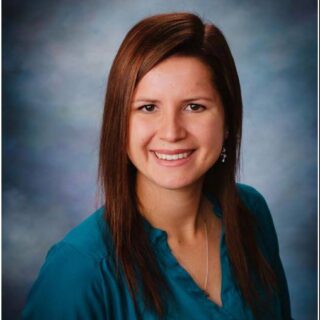
Clarke’s math program has a strong emphasis on communication and presentation skills. Explaining statistics to non-statisticians is a large part of my job and my Ph.D. work in Biostatistics at the University of Minnesota, and Clarke prepared me extremely well compared to other institutions.
The median pay in 2021 for mathematicians, according to the U.S. Bureau of Labor and Statistics.
Experience one-on-one interactions with faculty – academically and professionally.
Only one-percent of college graduates hold a degree in mathematics.

